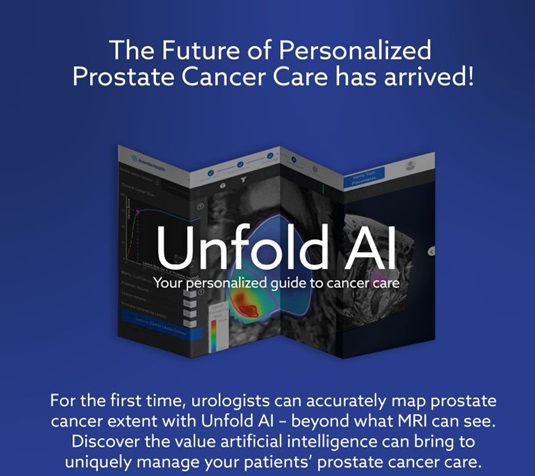Dear Commons Community,
A new study from UCLA found that an AI tool identified prostate cancer with 84% accuracy — compared to 67% accuracy for cases detected by physicians, according to a press release from the university.
Unfold AI, made by Avenda Health in California — a software recently cleared by the U.S. Food and Drug Administration — uses an AI algorithm to visualize the likelihood of cancer based on various types of clinical data.
In the study, a team of seven urologists and three radiologists analyzed 50 cases where tumors had been removed, looking for signs of residual cancer.
A few months later, the AI software performed the same analysis.
The “negative margin rate” — a medical term that describes the absence of cancer cells surrounding the removed tissue — was 45 times greater in AI-detected cases, so the chances of cancer being left behind was far less. Here is reporting courtesy of Fox News Digital.
Ali Kasraeian, M.D., a urologist at Kasraeian Urology in Jacksonville, Florida, said he uses the Unfold AI technology in his consultations with patients about managing their prostate cancer.
“The AI takes the information that we currently have about a patient’s prostate cancer — like their pathology, imaging and biopsy results — and creates a 3D cancer estimation map,” he told Fox News Digital via email.
“The results we get from Unfold AI tell us if a patient will be better suited for focal therapy or more radical therapy, such as radical prostatectomy, or radiation therapy, ensuring we optimize their cancer cure, the personalization of their cancer care, and their quality of life goals.”
Based on these findings, the AI could lead to more accurate diagnoses and more targeted treatments, reducing the need for full-gland removal and the side effects that can come with it, such as incontinence and impotence, the researchers wrote.
Joshua Trachenberg, PhD, is a professor of neurobiology at UCLA — and also a prostate cancer patient himself. After doctors found a slow-growing tumor on his prostate, they recommended removing the gland surgically — but he decided to explore other options.
“I got in touch with a team at UCLA, where I also am a faculty member, that was exploring alternate treatments to total gland removal,” Trachenberg, 56, told Fox News Digital via email.
The “negative margin rate” — a medical term that describes the absence of cancer cells surrounding the removed tissue — was 45 times greater in AI-detected cases, so the chances of cancer being left behind was far less.
The UCLA researchers were testing an approach that uses ultrasound to heat tissue and is “focally guided” by MRI to destroy the cancerous tissue without damaging the rest of the gland, he said.
After some imaging scans, it was determined that Trachenberg was a candidate for the experimental therapy.
“The 3D map created by Unfold AI enabled this team to identify precise margins, target the cancerous area and avoid any functional structures of the gland,” he said.
“It was truly able to visualize my cancer and it gave me a much better understanding of my case.”
Trachenberg is now cancer-free and was able to avoid a radical prostatectomy.
“I would recommend to any prostate cancer patient who is told they need a radical prostatectomy that they take some time to look at all their options, [including] AI technologies,” said a doctor and patient (not pictured).
“So many men are afraid of treatment because of the risks associated with gland removal, and Unfold AI enables therapies that don’t put men through the meat grinder,” he said.
This type of AI technology gives Trachenberg hope for the future of prostate cancer treatment, he told Fox News Digital.
“Too often, we are given only two options: Watch and wait for it to get worse, or take the entire gland out, which often leaves men with lifelong side effects that strain their physical health, emotional health and even their marriages,” he said.
“I would recommend to any prostate cancer patient who is told they need a radical prostatectomy that they take some time to look at all their options, [including] AI technologies.”
AI will likely become the diagnostic tool of choice for most major diseases.
Tony



